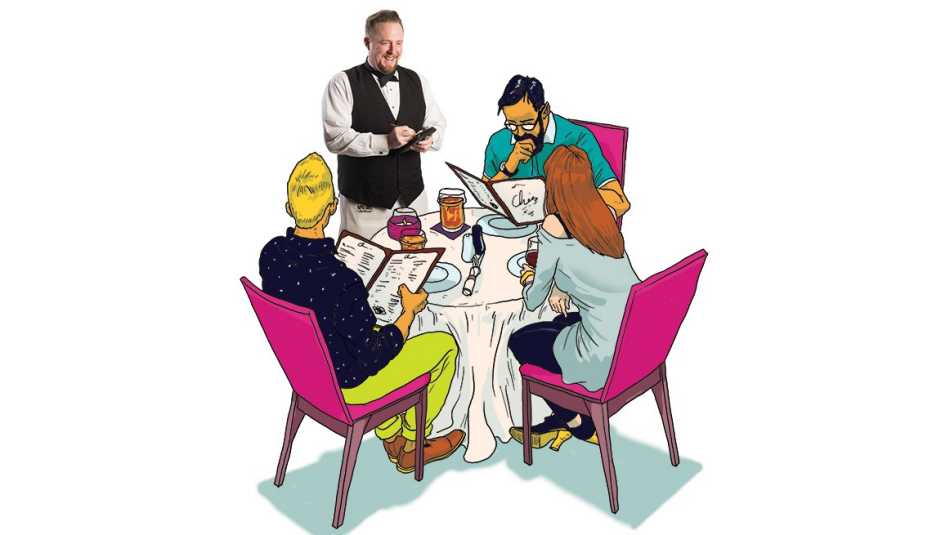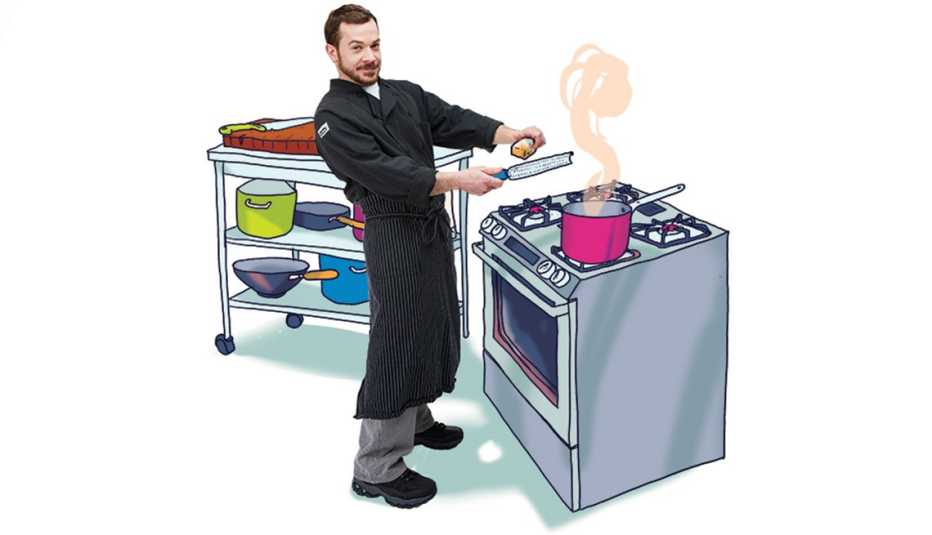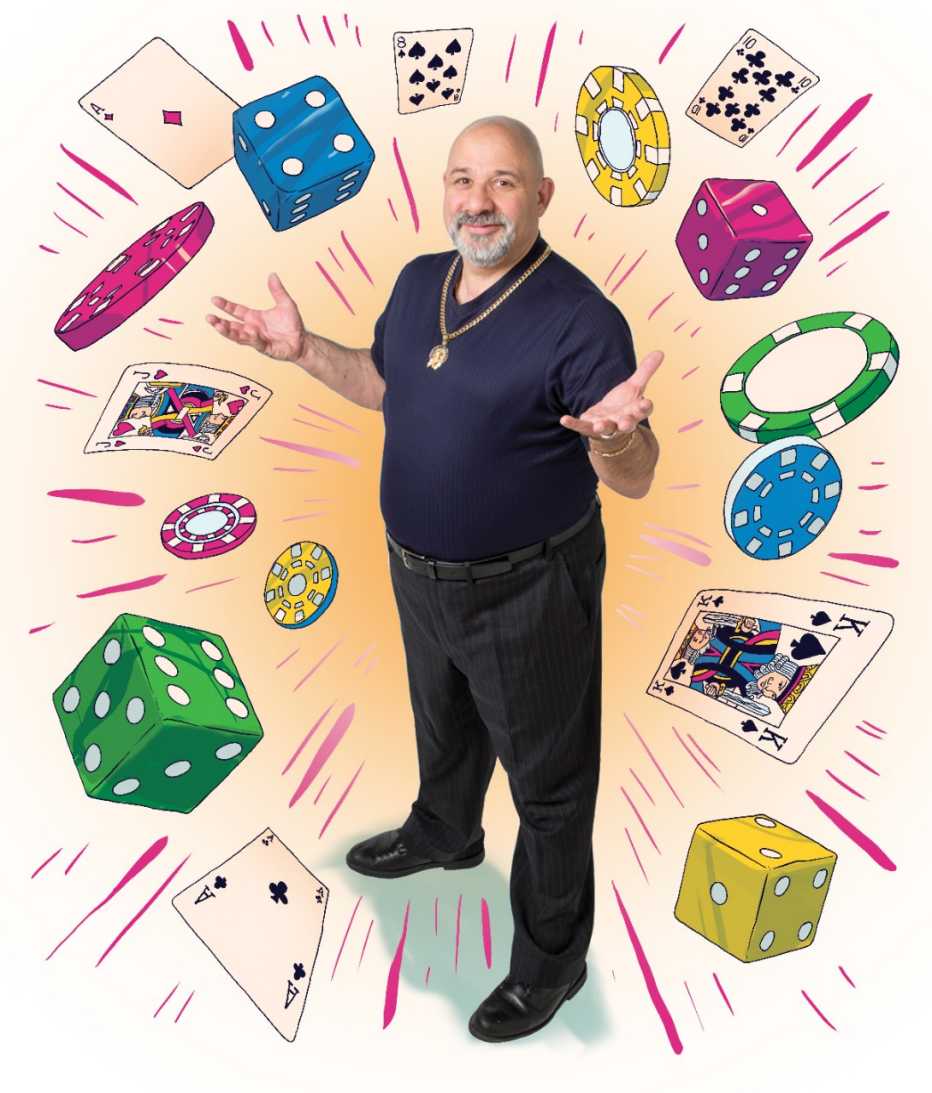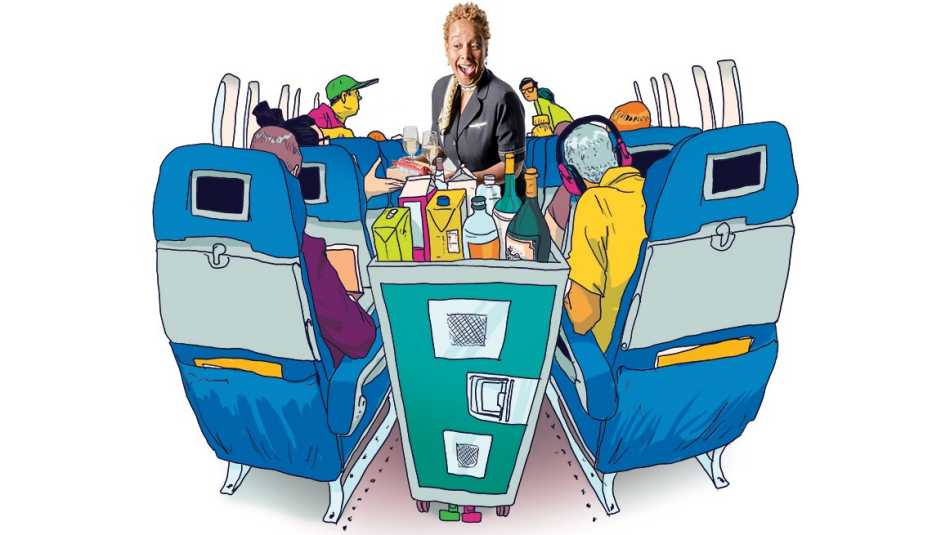AARP Hearing Center


“Restaurants don’t make healthy food.”
— The waiter
Taylor Steel, 36, waits tables at a top steak house in Dallas.
- Rib eye is the best steak — more flavor, very tender. And don’t just say “medium rare.” Give your server a description of what the middle of the beef looks like — “all pink from edge to edge” or “I like it all red.” Everybody’s got a different idea of what the middle should be.
- If you’re health conscious, don’t buy into claims that the food you order will meet your needs. Restaurants don’t make food that’s healthy —they make it tasty. Restaurants put so much butter on everything they serve. It’s hard to find a healthy option today.
- Always ask if there’s anything on the menu you should steer away from. If your server says, “That would be the last thing I’d choose,” there is a good reason.
- If you drink alcohol, the best bang for your buck is either beer or wine. Hard liquor is the most expensive, for what you are getting.
“Use a food thermometer.”
— The chef
Keith Bisciotti, 39, runs the kitchen at The Pantry in Washington Depot, Conn. He’s been in the restaurant business since he was 16.






































































More on Health
What the Medical Experts Know That You Don't
Good advice from dentists, nurses and more